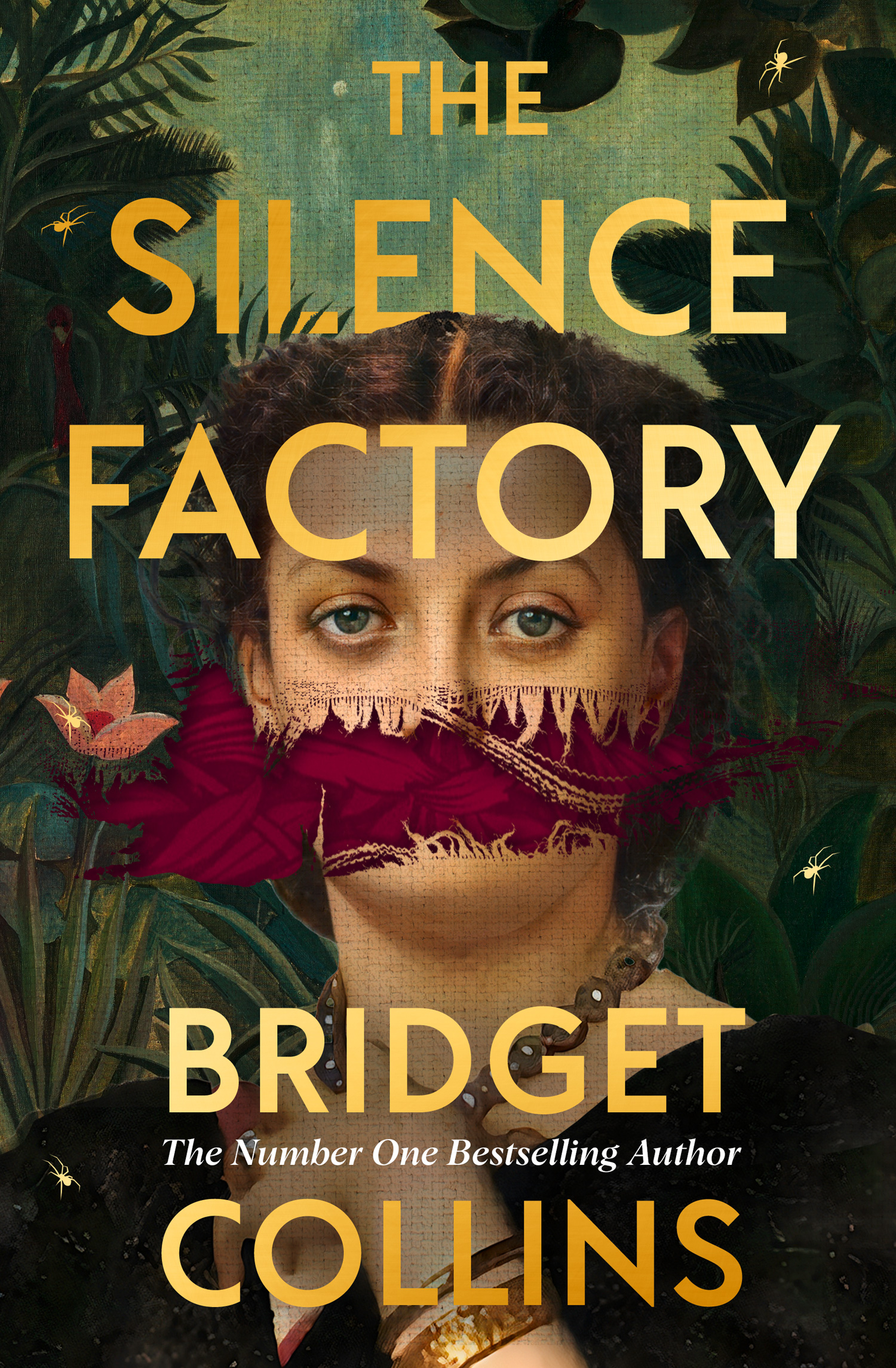You are viewing your 1 free article this month. Login to read more articles.
Bridget Collins on exploring silence and noise in her new speculative novel
Author of The Binding and The Betrayals, Bridget Collins now tackles the sound of silence.
"Silence is not only silence, sir, it is attention— it is sanity,” intones Henry, the protagonist in Bridget Collins’ brilliantly conceived and complex novel The Silence Factory, which asks: “What if you could choose silence whenever you wanted?”
The story explores this question over two timelines: one set in Victorian England, the other set years earlier on the fictional Greek island of Kratos. In the Victorian timeline we follow Henry Latimer, a widower, who becomes enamoured with Sir Edward Ashmore-Percy, a factory owner in the town of Telverton. In the Kratos timeline, the story is told through the diary entries of Edward’s great-aunt Sophia, who travels with her husband James across Greece in search of a spider whose silk possesses a mythical, unknown power. Those very spiders are now housed in the Telverton factory, where their silk is harvested to make fabrics that block out noise.
I was thinking about silence as a luxury and I was also thinking about it in political terms and how imposing silence is sinister, so you get this ambivalence about what it means and how it functions
Henry is enraptured by both the silk’s properties and the factory’s proprietor and begins to work with Edward to bring this seemingly miraculous fabric to the market. However, ambition begins to cloud judgement and Henry soon finds himself questioning everything he held to be true as lies unravel and history comes to bear on the present.
Silence “is something I long for”, explains Collins over video call from her home in Kent. “Noise really gets under my skin. So I was thinking about silence as a luxury and I was also thinking about it in political terms and how imposing silence is sinister, so you get this ambivalence about what it means and how it functions.” Describing silence posed an issue while writing the novel, as there are “lots of words for noise” but “it’s very hard to talk about absence”, says Collins, who became “very irritated at how few words there are in the English language” for silence.
Although the spiders’ silk can create silence, long exposure to the threads can result in deafness, and so many of the workers in Telverton are either hard of hearing or completely deaf, communicating via “fingerspeak”. A sensitivity reader was employed to check that Collins, who does not have a hearing disability, was faithful to the community. “It was a really positive experience,” she says, adding that several changes were made to the final draft in response to the reader’s questions and feedback.
Speaking up
Collins was inspired by her worship as a practising Quaker, which involves members of the group sitting in silence and waiting for “the Spirit to move them to say something. One of the things you get as a Quaker is people discussing what a meeting was like afterwards. That’s very interesting because if you’ve had a completely silent meeting, people [are] like: ‘Well, was that good or was that bad? What happened in that meeting?’ I think Quakers on the whole tend to agree that there are some meetings that are ‘good silence’ and everybody kind of knows they’re good.”
Later in our conversation, Collins describes the ability to differentiate between “good” and “bad” silence as something that is “universal, irrational and spiritual”.
Noise, Collins believes, is “about space, control and power”, and these forces conspire in the novel to interrogate ideas of authority and submission. Collins’ male characters are incredibly voluble. They use their voices to mould those around them and seek to use the silk to create new methods of physical and emotional confinement; whereas many of the women must find new ways to be heard either through diary entries, sign language or physical action. It is no coincidence that Collins re-read Jane Eyre when writing The Silence Factory—the Victorian idea of the “mad woman in the attic” gains new resonance when the silk’s power is manipulated by men.
I think more and more my books are about trying to be truthful and realising that it is a very complex thing
In Ancient Greek mythology, Arachne is transformed into a spider by Athena after she boasts that her weaving skills rival those of the goddess. The Silence Factory incorporates the mythological connection between spiders and women, but it was weaving and its function in myth as a “way [women] tell stories that otherwise they can’t tell” that intrigued Collins.
The narrative nods to weaving in numerous ways, including naming Edward’s daughter Philomel after the Ancient Greek figure Philomela who, after being attacked and having her tongue removed, weaves a tapestry to identify her attacker. Like her namesake, Philomel communicates non-verbally, but for less horrific reasons.
Structurally, Sophia’s diary entries are “the bedrock of the story and very much about the female experience and female silencing,” but they also create a textual tapestry that adds her voice into the silk’s history, which has been overwritten by her husband James, and Edward.
Changing times
Kratos is reminiscent of an ancient world. While Henry’s timeline is thick with the noise of industrialisation, Sophia’s is infused with the quiet, circadian nature of island life. On Kratos, it is the women who hold power, who are entrusted, like priestesses, with access to the spiders’ glade. But James poses a new threat. “I think because of the [novel’s] concept, I always knew there was a sense of a masculine, patriarchal and capitalist [force] colonising natural resources,” explains Collins. The spiders’ sacred space is corrupted when James, blind to their cultural significance, takes some of them for study in England.
Unlike her adult début The Binding, which was followed by another standalone, The Betrayals, Collins views The Silence Factory as “pricklier” and “richer” in its subject matter. “The Binding is very much a book that wears its heart on its sleeve. It’s a love story and that’s what it is trying to do, whereas this is much more complex and nuanced.”
What unites Collins’ storytelling is a dedication to truth. “I think more and more my books are about trying to be truthful and realising that it is a very complex thing. The truth matters, but it’s also very hard to tell it. As I get older, I have fewer and fewer strong, absolute moral convictions, [but] the one that I become more and more convinced of every time is that the truth is important and if you don’t start with the truth, you can’t go anywhere.”











